 August 2015 in “Dermatologica Sinica”
August 2015 in “Dermatologica Sinica” Men with severe hair loss may have poorer sperm quality.
[object Object] 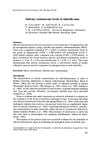 5 citations,
August 1987 in “Andrology”
5 citations,
August 1987 in “Andrology” Men with low or no sperm count have lower salivary testosterone levels, and saliva testing can measure their testosterone well.
 5 citations,
June 2008 in “Acta Cirurgica Brasileira”
5 citations,
June 2008 in “Acta Cirurgica Brasileira” Finasteride causes sperm production decrease in Mesocricetus auratus.
4 citations,
January 2023 in “Andrology” The testes produce sperm and hormones essential for male development.
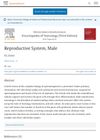 2 citations,
January 2014 in “Elsevier eBooks”
2 citations,
January 2014 in “Elsevier eBooks” The document explains how sperm cells are produced, the role of testosterone in this process, and how toxins can reduce sperm count and fertility.
 11 citations,
March 2010 in “International Journal of Andrology”
11 citations,
March 2010 in “International Journal of Andrology” Finasteride 1-mg doesn't harm sperm or pregnancy chances.
 18 citations,
June 2002 in “BJUI”
18 citations,
June 2002 in “BJUI” Finasteride doesn't change rat testicle weight or sperm production.
 17 citations,
January 2013 in “Our Dermatology Online”
17 citations,
January 2013 in “Our Dermatology Online” Dutasteride mesotherapy helps treat male hair loss but may harm sperm and sexual function.
10 citations,
September 2015 in “Folia Histochemica Et Cytobiologica” Finasteride treatment in male rats can reduce fertility and affect sperm development in their offspring.
 1 citations,
May 2023 in “Fertility and sterility”
1 citations,
May 2023 in “Fertility and sterility” Men who went through puberty later had lower sperm counts and altered hormone levels, possibly affecting fertility.
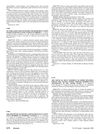 September 2008 in “Fertility and Sterility”
September 2008 in “Fertility and Sterility” Men and women in infertile couples feel using donor sperm may cause more stress and marital issues than using donor eggs.
 10 citations,
October 2008 in “Andrologia”
10 citations,
October 2008 in “Andrologia” Finasteride changes antioxidant enzyme expression, possibly affecting sperm protection in rats.
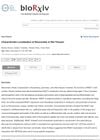 October 2018 in “bioRxiv (Cold Spring Harbor Laboratory)”
October 2018 in “bioRxiv (Cold Spring Harbor Laboratory)” Neuronatin is found in various cells of rat tissues and has a unique location in sperm cells.
 3 citations,
February 2018 in “Human Reproduction”
3 citations,
February 2018 in “Human Reproduction” A man with testotoxicosis was fertile despite low FSH levels, suggesting high testosterone may allow sperm production without FSH.
4 citations,
September 1977 in “Lipids” Gerbils on a fat-deficient diet had altered fatty acid levels, hair loss, reduced sperm, and lower body weight.
 March 2014 in “Fertility and Sterility”
March 2014 in “Fertility and Sterility” The April 2014 issue of "Fertility and Sterility" discussed various reproductive health topics, including hormone therapy benefits, sperm and genetic factors in male infertility, and the link between PCOS and diabetes.
 January 2003 in “Humana Press eBooks”
January 2003 in “Humana Press eBooks” Dihydrotestosterone and 5α-Reductase play a role in hair loss and prostate health, and finasteride can increase hair growth in men without affecting sperm production, but it doesn't work for postmenopausal women with hair loss.
August 2020 in “DOAJ (DOAJ: Directory of Open Access Journals)” Finasteride, at doses of 5mg or higher, may negatively affect male fertility by reducing the expression of certain genes involved in sperm production.
67 citations,
April 1988 in “The Journal of Clinical Endocrinology & Metabolism” A subtle androgen receptor abnormality can allow normal male development and sometimes fertility despite partial androgen resistance.
 38 citations,
December 2010 in “Fertility and Sterility”
38 citations,
December 2010 in “Fertility and Sterility” Finasteride may cause male infertility, stopping it can help.
 18 citations,
July 2020 in “Basic and Clinical Andrology”
18 citations,
July 2020 in “Basic and Clinical Andrology” Wait 3 months after COVID-19 before trying assisted reproduction and further research is needed on COVID-19's effects on male hormones and fertility.
 18 citations,
October 2018 in “Journal of The American Academy of Dermatology”
18 citations,
October 2018 in “Journal of The American Academy of Dermatology” Some skin medications can harm male fertility, but they don't seem to cause birth defects from father's exposure.
 18 citations,
June 2009 in “Journal of Molecular Endocrinology”
18 citations,
June 2009 in “Journal of Molecular Endocrinology” Finasteride exposure harms tadpole reproduction and hormone balance.
[object Object]  January 2024 in “Al-Ameed journal for medical research and health sciences”
January 2024 in “Al-Ameed journal for medical research and health sciences” Testosterone is vital for male health, and its deficiency is linked to aging and common health issues.
 May 2022 in “Research Square (Research Square)”
May 2022 in “Research Square (Research Square)” Melatonin improved sheep reproduction, being more beneficial and cost-effective in males.
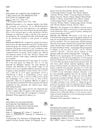 June 2018 in “The Journal of Sexual Medicine”
June 2018 in “The Journal of Sexual Medicine” Finasteride does not negatively affect male reproductive function.
January 2018 in “Elsevier eBooks” 5α-reductase-2 deficiency causes ambiguous genitalia at birth and affects male sexual development, but individuals often develop male characteristics at puberty.
 March 2013 in “Reactions Weekly”
March 2013 in “Reactions Weekly” A man's fertility improved after he stopped taking finasteride but worsened again when he restarted the medication.
June 2020 in “Mağallaẗ al-anbār li-l-ʻulūm al-bayṭariyyaẗ” Finasteride reduces fertility in male rats.
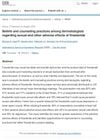 August 2023 in “International journal of impotence research”
August 2023 in “International journal of impotence research” Many dermatologists believe finasteride can cause sexual side effects and counsel patients about them.























